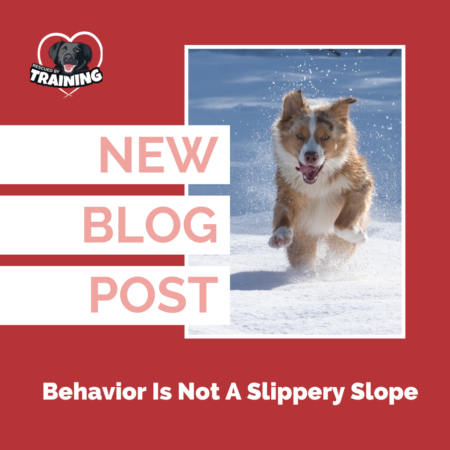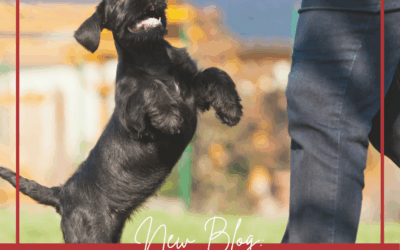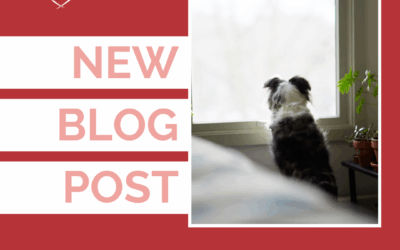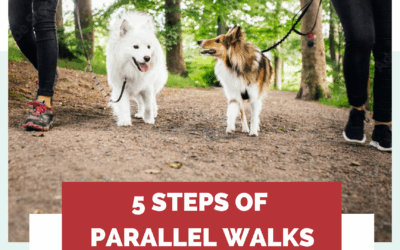As I recently discussed, behavior is never random. And it’s also not a slippery slope. Dog-dog issues don’t predict dog-human issues or vice versa. There are plenty of dogs who are great with other dogs but who are afraid of strangers. Just as there are plenty of dogs who are super friendly with people but are dog selective or dog aggressive. One doesn’t have any bearing on the other. Of course dogs can present with more than one behavioral issue, so we may find a dog who is afraid of strangers and who also is very dog selective but these are unrelated issues.
But I very often see posts online or have clients come to me for one issue, like their dog got into a scuffle at the park, worrying that this now means their dog will be unsafe with their child. They think one behavior is a slippery slope or a predictor of future behavior. But dog-dog sociability and dog-human sociability are two very different skills in dogs, both being strongly influenced in their early experiences during their critical socialization window. (For my free download on how fear is acquired in dogs, click here.)
I get it – any form of aggression, whether directed at humans or dogs is scary to an owner and responsible owners, who just may not know any better, naturally jump to the conclusion that if their dog is aggressive in one context that it might also be in other contexts. But this is rarely true. This is one of the many reasons it’s important to work with a qualified, positive reinforcement trainer if your dog is displaying any concerning behaviors. Not All Reactivity Is Aggression. Not all dogs who bark, lunge or otherwise alert to stuff, are fearful or aggressive. Many of these dogs are simply frustrated and not making any distinction between dogs who are fearful or aggressive and those who might be frustrated is dangerous territory. Lumping all dogs, regardless of what their underlying issue is, into a broad reactivity category means we are likely depriving many dogs of appropriate opportunities for interaction.
Even when we have a dog who has some sort of dog-human aggression, like resource guarding, that doesn’t also mean the dog isn’t generally pro-social and friendly with people. The context in which the aggression pops out, in this case is isolated to guarding valuable items, is important. Also important is the relationship between the person and the dog as this can also affect behavior. A trusted, familiar adult is safer to dogs than a stranger, a child or a familiar person who has scared or hurt the dog in the past, including through the use of aversive training methods. This is an important distinction and one I always discuss during my consults. If a dog is friendly with adults, this doesn’t mean the dog will necessarily be comfortable with children. Just because a dog is friendly with your friends coming to visit doesn’t mean the dog will be comfortable with workers coming in or people in uniforms. This is why early socialization to a broad diversity of people of all ages, shapes, sizes and races is critical to long term comfort around lots of different types of people.
No matter what your dog’s behavioral challenges are you want to keep your dog feeling safe, work at your dog’s pace and never put your dog in a knowingly scary situation.
If you need help with your fearful or anxious dog, schedule your one on one session here! And be sure to sign up for my free weekly newsletter so you don’t miss out on free tips, videos, personal stories, client successes and more!
Happy training!
![]()




